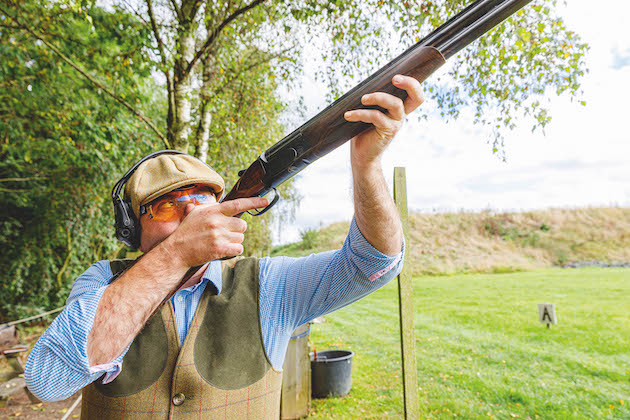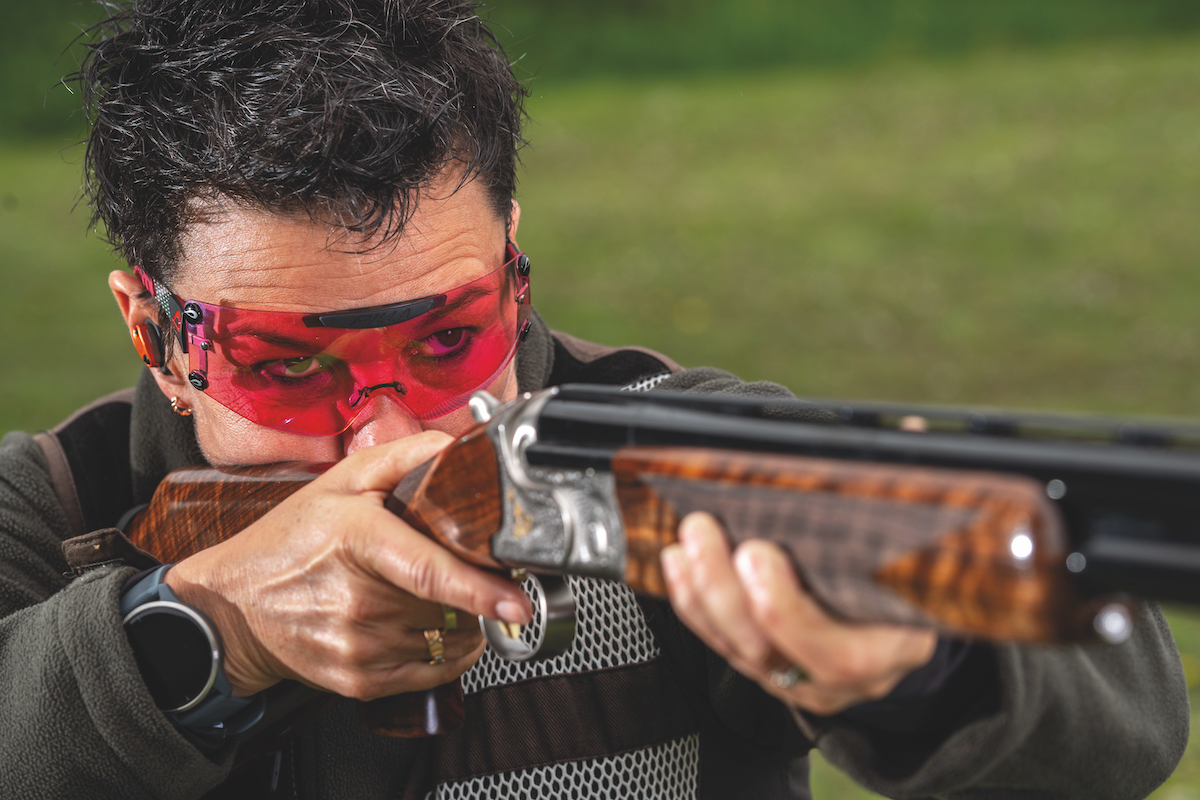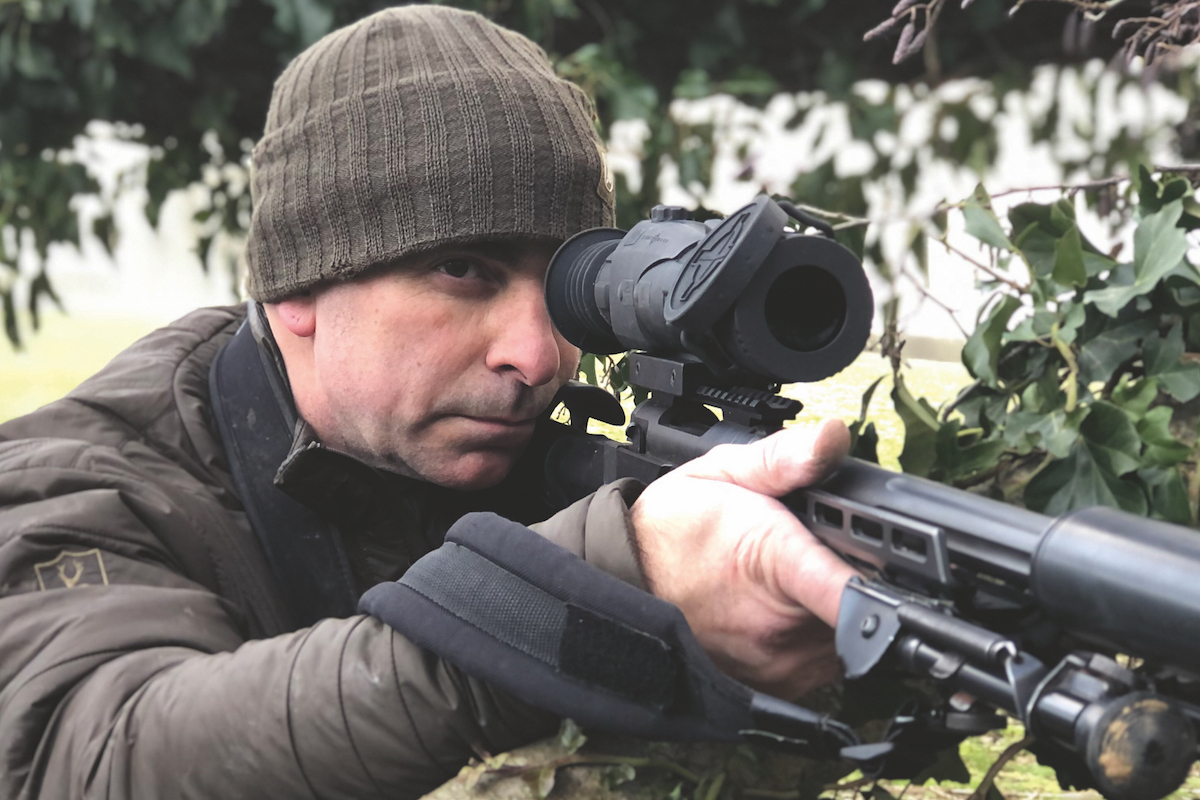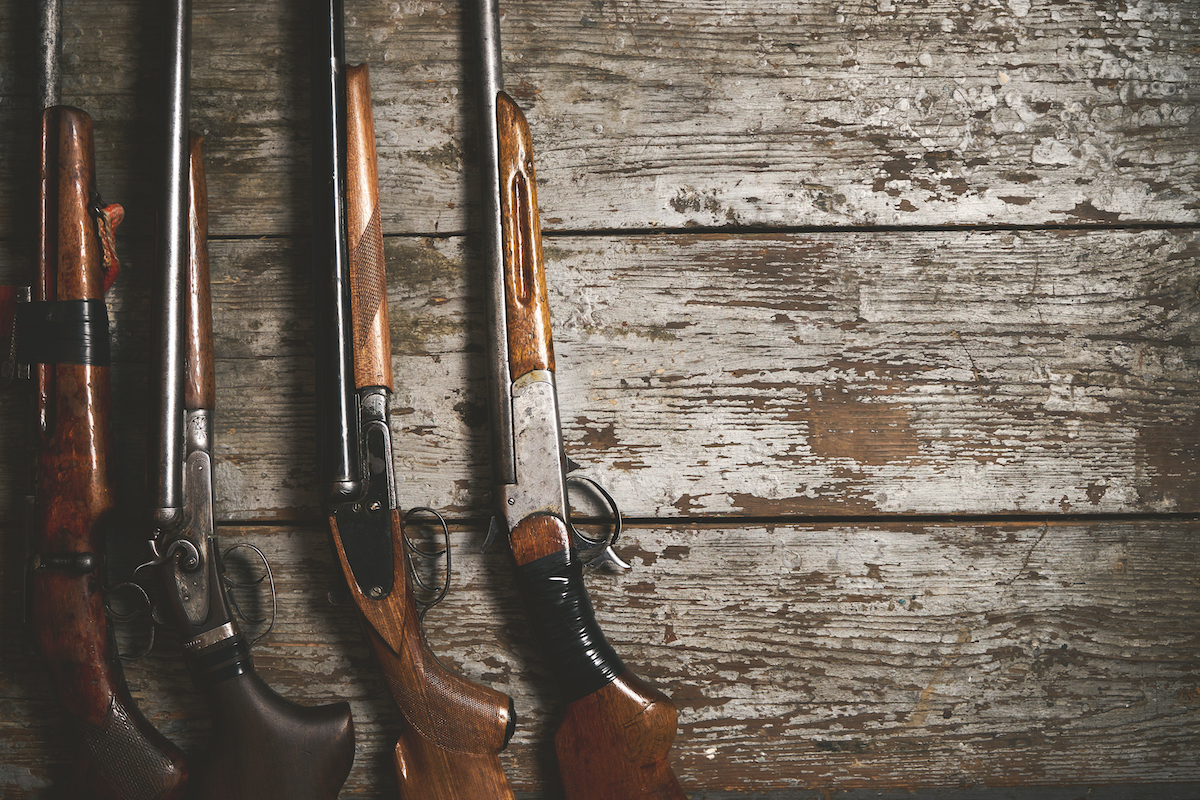What to look for when buying a gun
Buying a new gun should be a slow process, says Tom Payne

John Jeffries Custom Guns - Perazzi MX8, Legend II HP
It always amazes me how people will buy a gun based on its looks, even before they’ve looked at how well it’s built and how it handles.
Perhaps some manufacturers do that deliberately; if they can churn out well-figured stocks and laser up some pretty engraving, then for some customers it will be love at first sight.
It’s a condition I like to call ‘new gun syndrome’. You have no hang-ups with the gun so you shoot with a clear mind. Then suddenly the wheels fall off and your shooting is doomed because the gun was never right for you in the first place, no matter how pretty it is. (Read what to avoid when buying a gun.)

Off-the-shelf guns can be tweaked to your exact specification by a good gunsmith
Looking at a gun like this is the wrong way round. (Read buying your first shotgun.)
When buying a gun establish a make
The first thing to do when buying a gun, and this goes for all bore sizes and men and women alike, is to try and first establish a make that suits you. The only way to get a feel of a particular brand is to test various guns out at your local shooting ground. This is important to help you judge build quality, how well different brands truly handle and how compatible you are with a brand as an individual.
In an ideal world, we’d all get a gun made for us. Buying off the shelf won’t give you exactly what you want but setting a bit of budget aside to pay for a gunsmith to make a few tweaks is money well spent.
I will use Perazzi as an example because I shoot one and love them. But that doesn’t mean to say there aren’t Brownings, Berettas and Blasers out there, to name a few, that wouldn’t suit you as well.

Finding the right weight and balance is key
Go to a gun fitter
Once you have a make in mind, get yourself to a respected gun fitter for a session.
Unless you are getting a gun made, this will give a set of adjusting measurements that inform a gunsmith about the tweaks they may need to make.Depending on stock bolts, and the strength and pliability of the wood, most basic measurements can be achieved. Unfortunately, unless you are sweeping the grip or reducing the front of the comb (removing wood to allow someone with a bigger hand to shoot the gun more comfortably), the grip cannot be changed. (You’ll need a gunslip – read our guide to the best gunslips.)
Grip is crucial
The grip you have is so important. If your hand is not seated correctly then you will not mount the gun properly or consistently. If the grip is too big or too small, other issues will become apparent, like stretching too much for the trigger or pulling on the trigger. It can also change the length and cramp you up.
When looking at the stock, make sure the grain runs straight through the grip/hand. This is important as it gives the wood maximum strength through the most stressed part of the stock.
Barrel length and other things
There are a number of things to look at here. Firstly length. To an all-round game shooter, 30in barrels would be the standard go-to length; 32in barrels take a bit of getting used to and if you’re only shooting a few days a season, it’s probably a bit too much gun to handle. They are also excessive if you’re doing bits of rough shooting and spending time in the pigeon hide, with a bit of driven sport thrown in.
Barrel weight is also another major factor. With any gun, the overall weight and balance are so important, and, of course, the barrels affect this. For example, do you prefer light and lively barrels causing the balance to sit at the back of the gun meaning the shooter will have to do a lot of work? Or do you prefer a gun that has heavy barrels making it feel harder to control? The majority of guns will try and balance forward of the hinge pin.
As an example, these are my gun’s measurements and numbers: 8½lb Perazzi with 32in barrels with a weight of 1.530kg. The gun is balanced to my requirements so it’s a heavy gun with long barrels at a sensible weight but balanced out properly so it doesn’t feel heavy when I’m shooting it.

Aesthetics have instant appeal, but choose function over form
Top rib
The top rib is very important. It’s what takes your eye out towards what you’re shooting at. Many over-and-under game guns will have a thin top rib; side-by-sides have a concave rib and sporters have a wide or tapered rib. The finish on that top rib is important, too. You also have to choose the bead, which, on a shelf-bought gun, is easy enough to change. You don’t want anything affecting you being able to focus on what you are shooting.
Chokes
Chokes are, to some extent, about personal preference. I shoot fixed choke ⅝ in both tubes. A lot of Shots like multichokes but factory multichokes are not brilliant for many makes and do affect the balance, normally making the gun’s muzzle heavy. If you want multichokes then the only way to go is to have the gun ‘Teagued’. The best all-round game chokes are half and half fixed or slightly tighter. Fixed choke or Teagued is the only way forward in my opinion. Teague chokes is a company at the forefront of multichokes. Metal is removed at the end of muzzles and thin choke tubes that fit perfectly and flush with the muzzles are screwed in. They do not affect the weight or balance of the gun and pattern superbly. (Read more about Teague chokes here.)

Steel-proof: the fleur-de-lys and CIP marks
Steel proofed
Don’t just assume all modern over-and-unders are steel proofed because some aren’t. (Read will my gun be safe with steel shot?)
Fore-ends
Fore-ends come in all shapes and sizes: thin game, beaver tail, slim beaver tail, schnarbled, etc. Your front hand drives the gun so you need a comfortable grip on the fore-end making sure it allows you to have full control. Also, you should look at whether you have the ability to change the length of your front hand should you wish to. This is where a schnabled fore-end (where the fore-end tip flares out to a large nob) becomes a problem. Personally, I don’t like them.
Trigger pulls
It’s one of the first things I’m aware of when testing someone’s gun but it’s also something people seldom consider when buying a gun. The amount of problems caused for the shooter through heavy trigger pulls or pulls that aren’t crisp are innumerable. Your first pull should be around 2½lb and your second pull 3lb. Flat springs or coil springs can feel different so you need to find out what is best for yourself.
Where to buy
I would tend to favour shooting grounds with a good gun shop and a wide selection of guns. You can really have a look and test out guns. It’s very important.
3 rules for buying a gun
- Don’t be conned by the gun’s looks
- Spend as much as you can afford
- Get a gunsmith to tweak it
This article was originally published in 2020 and has been updated.








